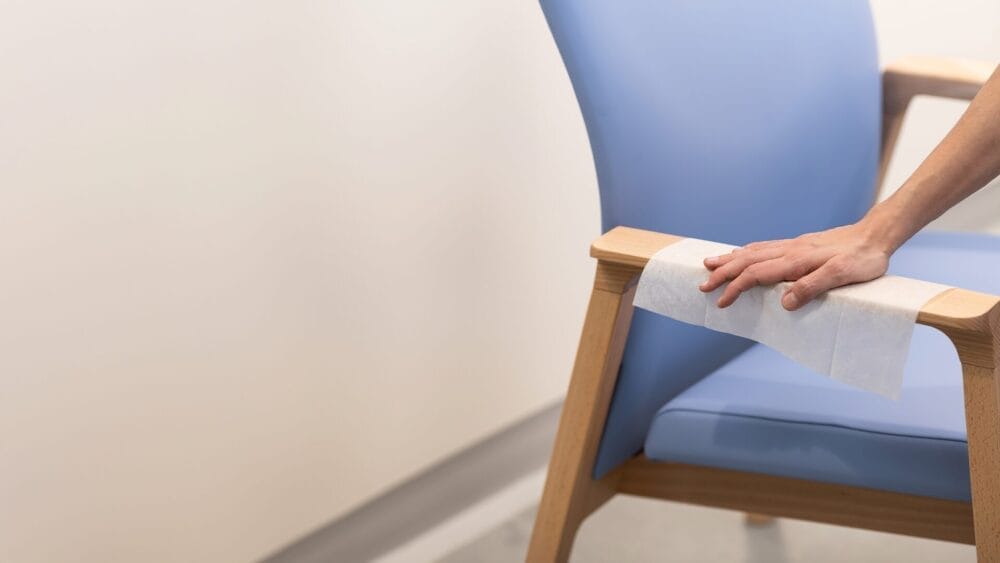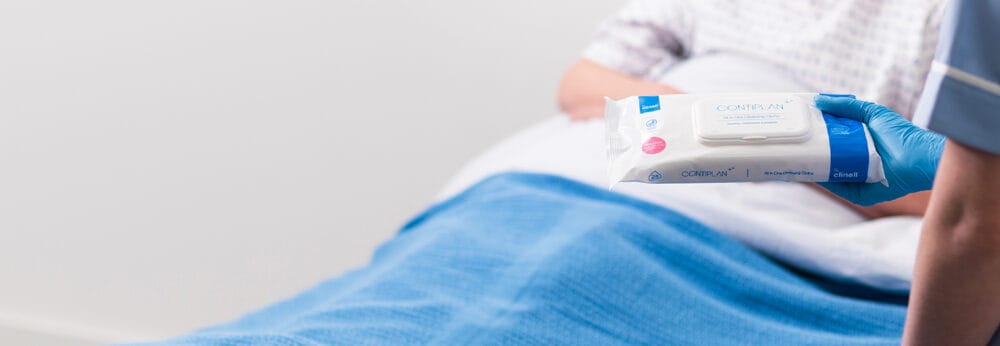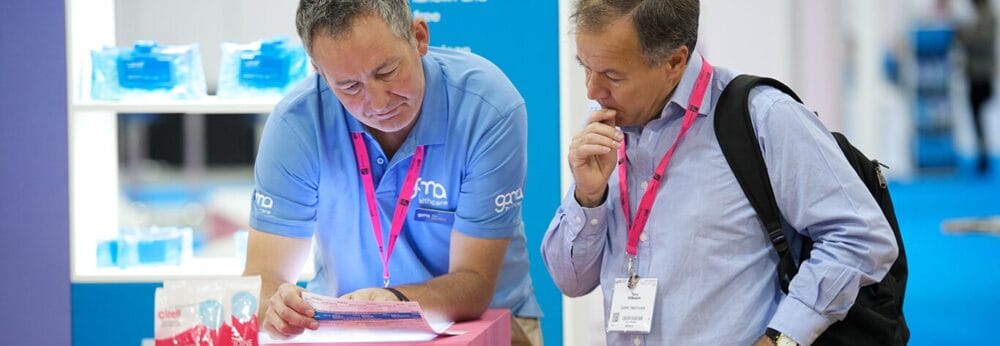Posts Tagged ‘Skin care’
Gloves Off: reducing unnecessary plastic waste during environmental cleaning and disinfection
In this blog, Dr Phil Norville discusses the momentum-gaining ‘Gloves Off’ campaign and highlights areas where healthcare workers can look to go gloves off during routine cleaning and disinfection. Hand hygiene is a vital part of providing safe healthcare. And the use of non-sterile gloves are an important part of safe hand hygiene. However, there…
Read MoreWhat is MASD & how can we prevent it?
Our Clinical Specialist for Skin, Georgina Saviolaki, shares an educational background on one of the most common Moisture Associated Skin Damage (MASD) conditions: Incontinence Associated Dermatitis or IAD. The inaugural Moisture Associated Skin Damage (MASD) Awareness Day, is a local and national driver to improve patient care and prevent skin damage as a result of moisture…
Read MoreNew digital hand hygiene game launches
Innovative educational game, ‘Hand Wash Squad’, helps children learn the art of handwashing. Hand Wash Squad, an exciting new hand hygiene game, launches this month to help parents and teachers across the globe educate children about the importance of handwashing. The concept has been created by a team of entrepreneurs and industry experts, including skin…
Read MoreCelebrating World Hand Hygiene Day
As we come towards 5th May, it’s time to celebrate global hand hygiene day! This year, the theme for the WHO’s campaign is ‘Clean care for all – it’s in your hands’. The WHO team in Geneva have published editorials in a range of journals (including one here in Infection Control and Hospital Epidemiology) outlining the details…
Read MorePreventing surgical site infections
A useful review published recently in an orthopaedic surgery journal (by Katarincic et al.) covers the various interventions that are often introduced to reduce the risk of surgical site infection (SSI). The evidence for some interventions is stronger than others, but there’s much we can do throughout the patient journey to reduce the risk of SSI, from…
Read MoreA “halo” effect of chlorhexidine patient bathing: reduced environmental contamination
An Irish study has examined whether daily bathing of patients using chlorhexidine results in a “halo” effect, in reducing environmental contamination. The study found that contamination of surfaces with VRE and ESBL Enterobacteriaceae (ESBL-E) in the near-patient environment was significantly lower when chlorhexidine bathing was in operation. The study was performed in a 12-bed mixed speciality…
Read MoreAntiseptics and disinfectants to support the prevention and control of Candida auris
Candida auris is an important emerging pathogen, which caused a large outbreak in a London hospital and has been reported from around the world. It shows a high level of resistance to antibiotics and appears to spread rapidly in hospitals. A new study evaluates the efficacy of various antiseptics and disinfectants that could support the prevention and control of C. auris.…
Read MoreMore evidence that chlorhexidine reduces MDRO colonisation in the ICU
A US before-after study evaluated the impact of introducing chlorhexidine daily bathing in an ICU setting. In line with other studies, the rate of acquisition of key hospital pathogens, including VRE, MRSA, and antibiotic-resistant Gram-negative bacteria reduced in response to the introduction of chlorhexidine, and remained lower over time. The 8 month before-after study was performed in…
Read MoreInfection Prevention 2016: a bug’s eye view
Another IPS conference has been and gone, and what a lot of fun and learning to be had! New research published, new products launched, and new contacts made – all in a few days in sunny Harrogate. Several of the lectures were outstanding: Prof Gary French on the ‘swing’ away from antibiotic-resistant Gram-positive bacteria towards…
Read MoreDaily chlorhexidine bathing works in a high prevalence MRSA ICU setting
A recent Korean study underlines the value of daily chlorhexidine bathing, demonstrating a reduction in the trend of MRSA incidence in a high-prevalence ICU setting. The study also underlines the threat of reduced susceptibility to chlorhexidine emerging, which may begin to erode gains that have been made through the introduction of chlorhexidine. The study was performed…
Read More







